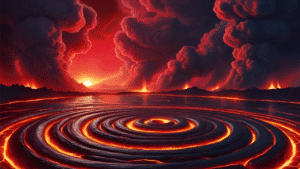Solar System of General Science MCQs
Solar System of General Science MCQs specially prepared for students and past paper repeated questions in all exams.
Which is the national space agency of Pakistan?
a) SUPARCO
b) NASA
c) ESA
d) CNSA
Explanation: SUPARCO (Space & Upper Atmosphere Research Commission) is Pakistan’s national space agency.SUPARCO stands for?
a) Space & Upper Atmosphere Research Commission
b) Space Utilization and Planetary Agency
c) Satellite and Upper Physics Research Corporation
d) Space and Universal Research Council
Explanation: SUPARCO is responsible for space research and development in Pakistan.Sun weighs as much as?
a) 333,000 Earths
b) 100,000 Earths
c) 1,000,000 Earths
d) 10,000 Earths
Explanation: The mass of the Sun is approximately 333,000 times that of Earth.How many Earths can fit inside the Sun?
a) 1,300,000
b) 1,000,000
c) 500,000
d) 2,000,000
Explanation: The Sun is large enough to hold about 1.3 million Earths inside it.How many Earths can be equal to the Sun in terms of size?
a) 109 Earths
b) 500 Earths
c) 200 Earths
d) 1,000 Earths
Explanation: The diameter of the Sun is about 109 times that of Earth.What is the distance between the Sun and Earth?
a) 93 million miles (150 million km)
b) 1 billion miles
c) 10 million miles
d) 50 million miles
Explanation: The average distance between the Earth and the Sun is about 93 million miles, also called 1 Astronomical Unit (AU).What is the age of the Sun?
a) 4.6 billion years
b) 10 billion years
c) 1 billion years
d) 3 billion years
Explanation: The Sun is estimated to be around 4.6 billion years old.Closest planet to the Sun is?
a) Mercury
b) Venus
c) Earth
d) Mars
Explanation: Mercury is the closest planet to the Sun.Smallest planet in the Solar System is?
a) Mercury
b) Mars
c) Venus
d) Earth
Explanation: Mercury is the smallest planet in the Solar System by both mass and volume.Mercury is mostly made up of?
a) Iron and rock
b) Ice
c) Gas
d) Water
Explanation: Mercury is a terrestrial planet with a large metallic core composed mostly of iron.Brightest and hottest planet in the Solar System is?
a) Venus
b) Mercury
c) Mars
d) Jupiter
Explanation: Venus is the hottest due to its thick atmosphere, which traps heat through the greenhouse effect.Which is the sister planet of Earth?
a) Venus
b) Mars
c) Jupiter
d) Mercury
Explanation: Venus is called Earth’s sister planet because of its similar size and proximity.Which is the biggest of all the terrestrial planets?
a) Earth
b) Venus
c) Mars
d) Mercury
Explanation: Earth is the largest of the rocky terrestrial planets in the Solar System.Which planet is called the red planet?
a) Mars
b) Venus
c) Jupiter
d) Saturn
Explanation: Mars is called the red planet due to its iron oxide-rich surface, giving it a reddish appearance.How many moons does Mars have?
a) Two
b) One
c) Four
d) Three
Explanation: Mars has two small moons, Phobos and Deimos.Name of moons of Mars are?
a) Phobos and Deimos
b) Titan and Europa
c) Ganymede and Callisto
d) Io and Triton
Explanation: Phobos and Deimos are the two natural satellites of Mars.Largest planet in the Solar System is?
a) Jupiter
b) Saturn
c) Neptune
d) Uranus
Explanation: Jupiter is the largest planet, with a diameter of about 139,820 km.Name the biggest moon of Jupiter?
a) Ganymede
b) Europa
c) Io
d) Callisto
Explanation: Ganymede is the largest moon in the Solar System and is bigger than Mercury.Ganymede was discovered by?
a) Galileo Galilei
b) Isaac Newton
c) Johannes Kepler
d) Nicolaus Copernicus
Explanation: Ganymede was discovered by Galileo Galilei in 1610.Which is the least dense planet of the Solar System?
a) Saturn
b) Jupiter
c) Uranus
d) Neptune
Explanation: Saturn is the least dense planet; it could float in water if a large enough body existed.Most well-known moon of Saturn is?
a) Titan
b) Enceladus
c) Dione
d) Rhea
Explanation: Titan is the most famous moon of Saturn due to its thick atmosphere and surface lakes.Which is the second-largest moon in the Solar System?
a) Titan
b) Ganymede
c) Europa
d) Callisto
Explanation: Titan, a moon of Saturn, is the second-largest after Ganymede.Which is known as the green planet?
a) Uranus
b) Neptune
c) Venus
d) Mars
Explanation: Uranus is called the green planet due to its bluish-green appearance caused by methane in its atmosphere.How many moons does Uranus have?
a) 27
b) 13
c) 20
d) 30
Explanation: Uranus has 27 known moons.The largest moon of Uranus is?
a) Titania
b) Miranda
c) Ariel
d) Oberon
Explanation: Titania is the largest moon of Uranus.Which is the farthest planet from the Sun?
a) Neptune
b) Uranus
c) Pluto (Dwarf Planet)
d) Jupiter
Explanation: Neptune is the eighth and farthest planet from the Sun.

